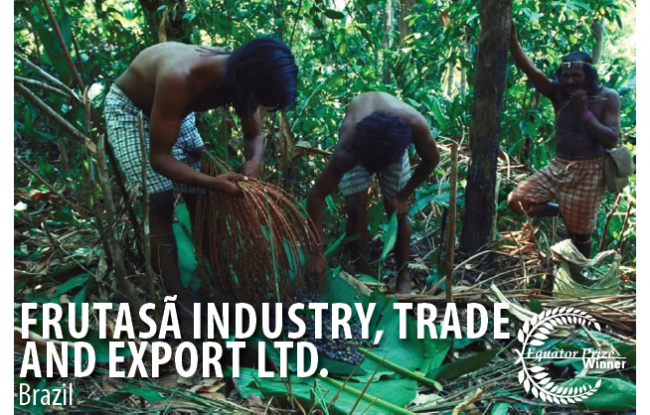Problem of not having legal title to residential lands in Siddeshwarwadi, Maharastra, India
SAS reports are made available in order to provide timely access to the information by interested researchers. This report has been subject to an internal review process to ensure accuracy and quality.
Insecure village and housing land among the Katkari, Maharastra, India
The paper outlines issues arising in a planning process with a poor tribal group who have no legal title to the land where their homes have been for decades. Families live with the constant fear of eviction, an ever-increasing occurrence in Thane District where land prices are rising rapidly due to proximity to Mumbai. The character of the project was identified and a planning approach and management tool was selected. Six months later, a second assessment was done and project modalities adjusted.
Overcoming inequities in access to natural resources : experiences from Asia
This Working Paper reviews the literature on the equity implications of different arrangements of natural resource management. The focus is on gender, ethnic and economic differences in access to natural resources in Asia, where two-thirds of the world’s poor live. First, the importance of common pool resources for the poor, women and minority groups is set out along with the implications of reduced or lost access to these resources.
Privatization, co-operation and sustainability : understanding the implications of land-reform in Goa
Across the developing world the way in which land is controlled and managed has been steadily changing. In the past fifty years, community ownership has increasingly given way to privatization. The impact of this change on social equity and on the environment is a key issue that interests conservationists and politicians alike.
Ideal scenario of legal title in Siddeshwarwadi, Maharastra, India
SAS reports are made available in order to provide timely access to the information by interested researchers. This report has been subject to an internal review process to ensure accuracy and quality.
Reasons for neglect of residential land issues in Navliwadi, Maharastra, India
Towards the end of this assessment process, participants decided to present a land petition at the village assembly and with officials of the revenue department, in an attempt to broaden their network of support and draw attention to their rights. The focus of the assessment was neglect of government officials and elected representatives. Participants also recognized that gaps in information and communication related to the Katkari’s legal rights as residents of tribal lands, worsen the situation by keeping from public view illegal advantages held by wealthy landowners.
More crop per drop: Revisiting a research paradigm: results and synthesis of IWMI's research 1996-2005
This volume is an analytical summary and a critical synthesis of research at the International Water Management Institute over the past decade under its evolving research paradigm known popularly as 'more crop per drop'.
Land reform: Land settlement and cooperatives
This bulletin is issued by FAO as a medium for the dissemination of information and views on land reform and related subjects to the United Nations, FAO Member Governments and national and international experts and institutions. Articles are published in the original language (English, French or Spanish).
Land reform: Land settlement and cooperatives
This issue of Land Reform, Land Settlement and Cooperatives offers the reader a series of articles and information and examones the importance of land tenure data and databases and their roles in their host societies. The volume represents rich set of articles specific for many regions and countries. The data presented is crucial for decison and policy making inthe fields of economic development, food security and environmental sustainability,
Cropping systems, land tenure and social diversity in Wenchi, Ghana: Implications for soil fertility management.
The original entry point for this study was how to optimize long-term rotation strategies for addressing the problem of soil fertility decline in Wenchi, Ghana. However, as the study progressed over time, it was realized that what we initially interpreted as soil fertility management strategies were closely intertwined with wider issues such as cropping systems, livelihood aspirations and land tenure relations.
Equator Initiative Case Studies. Brazil. FrutaSã Indústria, Comércio e Exportação Ltda (FrutaSã Industry, Trade and Export Ltd.) (Portuguese)
Local and indigenous communities across the world are advancing innovative sustainable development solutions that work for people and for nature. Few publications or case studies tell the full story of how such initiatives evolve, the breadth of their impacts, or how they change over time. Fewer still have undertaken to tell these stories with community practitioners themselves guiding the narrative. The Equator Initiative aims to fill that gap.









